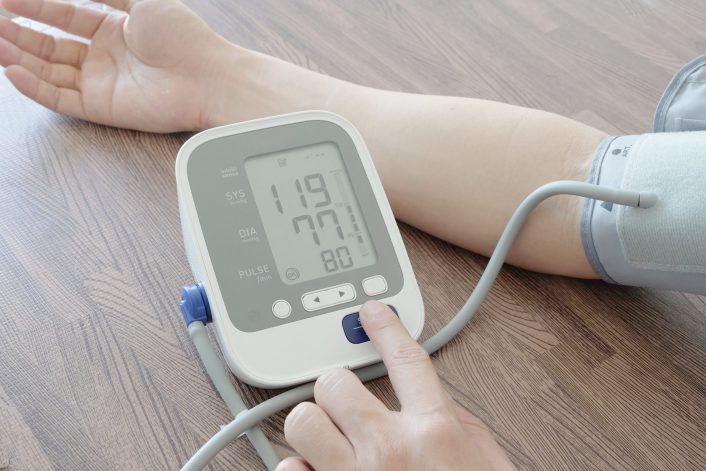
What is it?
Hypertension is the medical name for high blood pressure. High blood pressure means your blood is pumping with more force than normal through your arteries.
After a while, this increased pressure can start to damage blood vessels in the brain, heart and kidneys. This could lead to stroke, heart failure or kidney failure. Lowering your blood pressure reduces these risks.
What will my GP do now?
When your GP diagnoses you with hypertension, they will also want to get a good picture of your overall health. This includes the health of your heart and kidneys.
To do this, your GP may:
- Measure your weight and ask about your diet
- Ask you about your lifestyle, for example if you smoke, drink alcohol or exercise regularly
- Recommend changes to your lifestyle, such as diet and regular activity
- Prescribe blood pressure lowering medication if necessary
- Order blood and urine tests to check for other issues such as high cholesterol or kidney problems
- Refer you to a specialist if necessary
What will my GP do in the future?
People with high-blood pressure often need to be monitored and treated for the rest of their lives.
So your GP may want to see you regularly for follow-up.
At your follow-up visits your GP may:
- Check your blood pressure
- Adjust medication if necessary
- Check how you are going with changes to your lifestyle
- Perform a yearly kidney health check (usually blood and urine test)
- Refer you to a specialist if your blood pressure is not controlled or there are other complications
What can I do?
See your GP regularly for check-ups – you will need to have your blood pressure checked regularly to make sure any treatment is working well. It’s important to stay active when you have high blood pressure. Your GP may recommend certain types of regular activity to suit your circumstances. You should also:
- Always follow any dietary changes recommended by your GP
- Take your medication as prescribed
- Take and record your blood pressure at home, if your GP has advised you to do so.
- Quit smoking if you still smoke – phone 13 78 48 to get started.
- Ask your GP about the DASH diet. The DASH diet has been shown to reduce blood pressure within 2 to 4 weeks (see ‘RACGP – DASH Eating Plan’ in the section below).
